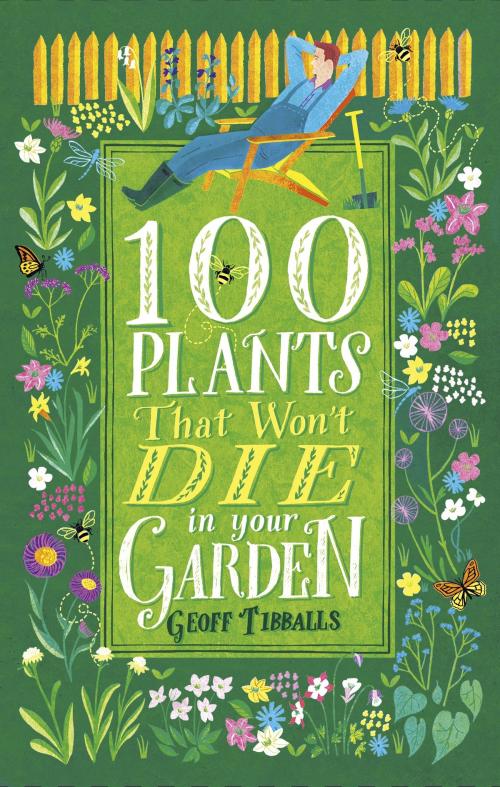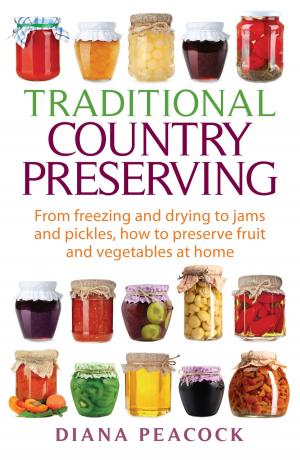100 Plants That Won't Die in Your Garden
Nonfiction, Science & Nature, Nature, Plant Life, Plants, Home & Garden, Gardening| Author: | Geoff Tibballs | ISBN: | 9781472138002 |
| Publisher: | Little, Brown Book Group | Publication: | March 9, 2017 |
| Imprint: | Robinson | Language: | English |
| Author: | Geoff Tibballs |
| ISBN: | 9781472138002 |
| Publisher: | Little, Brown Book Group |
| Publication: | March 9, 2017 |
| Imprint: | Robinson |
| Language: | English |
Stocking a garden with plants can be an expensive business, so there are few things more frustrating than when the prized specimen for which you have paid a king's ransom either online or at a garden centre shrivels up and dies within a year or so of purchase. If you can prove that the plant was half-dead when it arrived, you may able to obtain a refund from some online retailers, but for the most part you have to put it down to experience and make a firm mental note not to buy fussy plants in future.
The problem is that many websites and catalogues claim that everything they stock is easy to grow. Herbaceous perennials are a particular minefield. Too often you are told that a certain plant 'will come back year after year' without fail when in reality it is either so tender that the only chance of it surviving an average British winter is in a greenhouse or it is a short-lived perennial that is unlikely to flourish beyond two years anyway - and even then only if the local slugs and snails are on a diet.
This book cuts through the horticultural sales pitches by listing 100 plants which, for little care beyond the essential watering at planting time, can reliably be expected to thrive in just about any garden. These plants are all but indestructible - pests give them a wide berth, they will prosper in any reasonable garden soil and will withstand anything that the UK climate throws at them. Divided into sections for shrubs, conifers, climbers, perennials, grasses, annuals, alpines and bulbs and with each entry having a Value For Money (VFM) rating out of 10, this easy-to-use guide will prove invaluable not only for the new gardener but also for old hands who are fed up with wasting time and money on plants that all too rapidly lose the will to live. With these suggestions, you can be assured of year-round colour and interest in your garden for the minimum of effort.
Stocking a garden with plants can be an expensive business, so there are few things more frustrating than when the prized specimen for which you have paid a king's ransom either online or at a garden centre shrivels up and dies within a year or so of purchase. If you can prove that the plant was half-dead when it arrived, you may able to obtain a refund from some online retailers, but for the most part you have to put it down to experience and make a firm mental note not to buy fussy plants in future.
The problem is that many websites and catalogues claim that everything they stock is easy to grow. Herbaceous perennials are a particular minefield. Too often you are told that a certain plant 'will come back year after year' without fail when in reality it is either so tender that the only chance of it surviving an average British winter is in a greenhouse or it is a short-lived perennial that is unlikely to flourish beyond two years anyway - and even then only if the local slugs and snails are on a diet.
This book cuts through the horticultural sales pitches by listing 100 plants which, for little care beyond the essential watering at planting time, can reliably be expected to thrive in just about any garden. These plants are all but indestructible - pests give them a wide berth, they will prosper in any reasonable garden soil and will withstand anything that the UK climate throws at them. Divided into sections for shrubs, conifers, climbers, perennials, grasses, annuals, alpines and bulbs and with each entry having a Value For Money (VFM) rating out of 10, this easy-to-use guide will prove invaluable not only for the new gardener but also for old hands who are fed up with wasting time and money on plants that all too rapidly lose the will to live. With these suggestions, you can be assured of year-round colour and interest in your garden for the minimum of effort.















